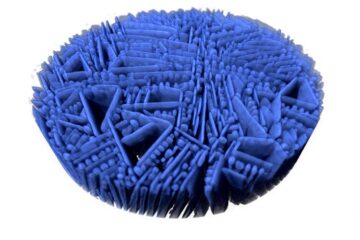Eighth International Network Conference (INC 2010) Heidelberg

Conference themes – Suggested topics for papers include, but are not limited to, the following:
o Internet technologies and applications: Internet architecture and protocols, Search technologies, Semantic web, Multicast/ broadcast technologies, SOA/Web services, Content management, Unified communications
o Network architectures and management: NGN, System management, Quality of service, Real time applications, Distributed systems and middleware, Multimedia communications
o Security: Authentication and access control, Network security, Intrusion detection and response, Cryptography, Information security and privacy management, Usability of security applications
o Applications and impacts: eLearning, eCommerce, Virtual communities, Social legal and ethical issues, Human interaction issues, Pervasive networks, Social networks, Network-enabled devices
o Mobile and wireless networking: 3G and 4G technologies, Mobile wireless Internet, Mobile commerce, Service discovery and management, Mobile device management, Wireless protocols, Wireless sensor or satellite networks, networks of actuators, broadband wireless access
The conference welcomes papers addressing technological and/or application level issues, as well as those illustrating the impact of networking in a societal context (e.g. commerce, communication, education).
In addition there will be three intensive workshop sessions covering interesting and controversial topics:
o Next Generation Networks – Next Revenues? Innovative ideas within Next Generation Networks will have a huge impact on our society. New applications with a dynamic deployment may support the rapid development of new services even better than before. Does this lead to new revenues as well?
o Security vs. Usability Practical evidence suggests that these are often contradictory requirements. But do the issues have to be in competition? What approaches could solve the problem?
o The Pedagogy of eLearning? The role of eLearning within teaching is continuously changing. How will a varying number of factors influence the pedagogy of eLearning? What will be the future concepts within pedagogy in this context?
Author guidelines
Authors are invited to submit their full papers or position papers, via the conference web site, by 31st January 2010. The total length of the paper should not exceed ten pages for full papers and four pages for workshop position papers, including all figures, tables and references. A comprehensive set of instructions for preparing camera ready papers will be available on the conference web site. All papers will be double-blind reviewed by members of the Programme Committee.
Important Dates
Paper submission: 31st January 2010
Author notification: 5th March 2010
Final papers: 9th April 2010
Contacts
Conference co-chairs: Prof Udo Bleimann and Prof Steven Furnell
Organising co-chairs: Dr Paul Dowland and Steffen W. Schilke, MBA
email: info@inc2010.org
Media Contact
Weitere Informationen:
http://www.inc2010.orgAlle Nachrichten aus der Kategorie: Veranstaltungsnachrichten
Neueste Beiträge

Chemischer Seiltrick auf molekularer Ebene
Mechanismusforschung hilft, wenn „Trial & Error“ versagt. In den meisten industriellen chemischen Reaktionen verbinden sich Katalysatoren mit den Ausgangsstoffen und begleiten sie über Zwischenstufen zum Produkt. Dieser Weg wird in…

Gefriergussverfahren – Eine Anleitung für komplex strukturierte Materialien
Gefriergussverfahren sind ein kostengünstiger Weg, um hochporöse Materialien mit hierarchischer Architektur, gerichteter Porosität und multifunktionalen inneren Oberflächen herzustellen. Gefriergegossene Materialien eignen sich für viele Anwendungen, von der Medizin bis zur…

Biomarker für Therapie-Erfolg bei Tumorerkrankung im Knochenmark identifiziert
Hochrangige klinische Studie zu CAR-T-Zelltherapie beim Multiplen Myelom. Die CAR-T-Zelltherapie hat sich als wirkungsvolle Behandlung verschiedener hämatologischer Krebserkrankungen etabliert. Doch nicht bei allen Erkrankten schlägt die Therapie gleich gut an….





















